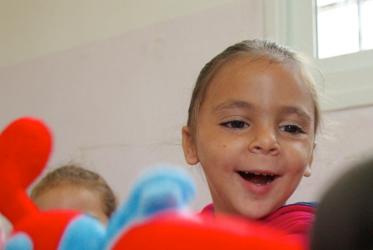Evangelische Kirche der Böhmischen Brüder
(Českobratrská církev evangelická)
The present Evangelical Church of Czech Brethren is the result of the union of the former Czech churches of the Helvetic and Augsburg Confessions. Its history, however, goes back to the 15th century awakening through the work of Jan Hus and his followers, which later on brought into existence the Unitas Fratrum. Although the Protestants constituted 90 percent of the population at the beginning of the 17th century, they were outlawed in their own homeland after 1620. They had either to leave the country or accept the Catholic faith. The most notable of the exiles was J.A. Comenius, the last bishop - or senior - of the Unitas Fratrum. In 1781, the emperor granted the Protestants a measure of religious liberty. But still they had to belong either to the Lutheran or to the Reformed Church. Only in 1918 was union reached on the basis of a common return to the Hussite and Brethren Reformation, which brought into being the Evangelical Church of the Czech Brethren. The ECCB is the largest Protestant church in the country.
The congregations of the ECCB have a presbyterian order and the whole church is organized on synodal principles. The synod meets each year and its 80 members are elected by the seniorate meetings. The life and work of the church is closely connected with the work of Evangelical Diaconia with its 32 local centres, which was set up after the political changes of 1989. The new situation made it also possible for the church to appoint pastors in public institutions, like the military chaplains, prison chaplains, diaconal pastors, reporters working in the media, etc. Training for the ministry takes place at the Evangelical Theological Faculty of Charles University in Prague. Some 10-15 graduates of this faculty start each year their ordained mission in the church. The publishing house KALICH is also closely linked with the ECCB.
The church is concerned about the spiritual life of its members. Its major programmes include postgraduate theological training of pastors, courses for lay preachers and training of other lay workers. There is a large meeting of youth each year in one or the other of the Czech towns. The main topics of discussion of the last such gathering were: the meaning of ordination, holy communion for children, the meaning of the gospel in secular society, the financial resources of the church, etc.
Besides its membership in the ecumenical bodies mentioned above, the church has a large range of bilateral contacts with many churches in Europe and in the world.



